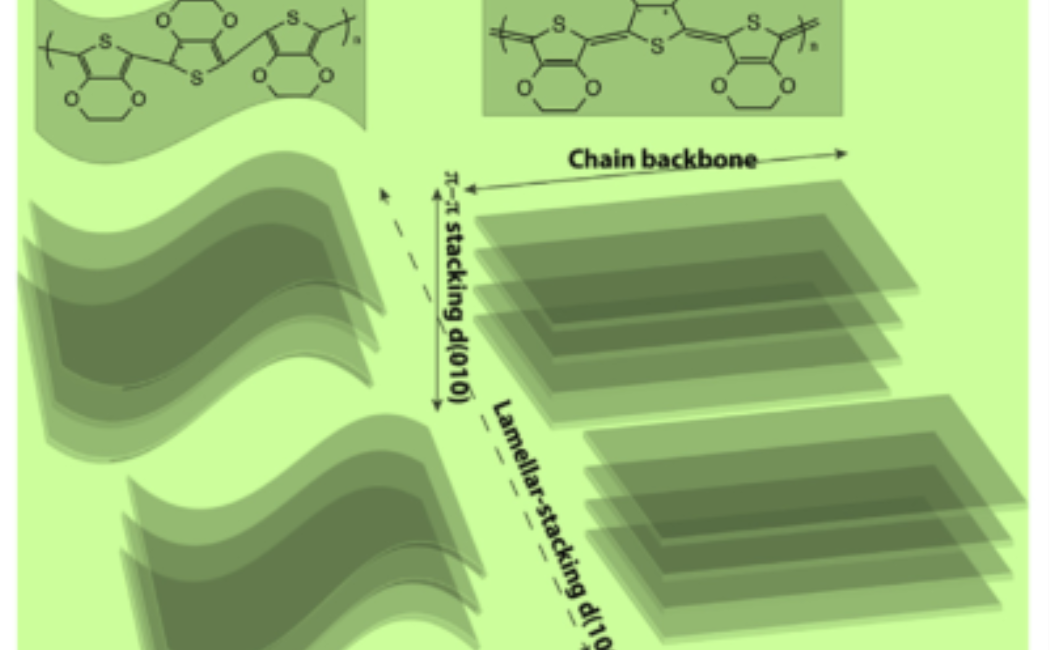


09 June, 2019
Next-generation stretchable electronics, such as wearable electronics and implantable sensors, require stretchable conductive fibers. Despite their great popularity for wearable electronics, conducting polymers do not sustain deformation very well because of their rigid conjugated backbone. Here, we report the production of stretchable conductive poly(3,4-ethylenedioxythiophene)/poly(styrene sulfonate) (PEDOT/PSS)- conjugated polymer fibers, using optimal wet-spinning, followed by hot drawing. We engineer the fibers by introducing a copolymer, polyethylene-block-poly (ethylene glycol) (PBP), that modifies both the electrical and mechanical properties of the raw PEDOT/PSS. We then systematically investigate the effects of the PBP fraction (fs) on the properties of the PEDOT/PSS by analyzing the changes in the conductivity, morphology, stretchability, and conformation of the PEDOT chains. We find that the conductivity of PEDOT/PSS increases from 311 ± 8 S/cm to 415 ± 12 S/cm (133% increase), when fs = 0.4, and that the strain of the fibers, at failure, is as high as (ε = 36%) for fs = 0.7, eq. 3x the value of as-spun PEDOT/PSS fibers. Raman and XRD analyses show that the conformational changes from benzoid to quinoid structures, in the PEDOT chains, significantly enhance the conductivity of the fibers. This conformational change facilitate the switch from a coil structure of PEDOT/PSS into a linear or an extended-coil conformation that increases interchain interaction.